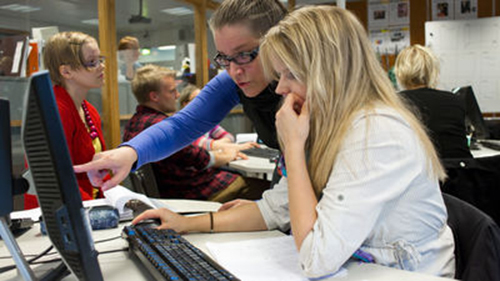
For any country to remain competitive in global education, it is important that its thought leaders continue to evaluate their system’s approach to learning. Leading education systems such as Finland are doing this. Despite shorter schools days, less homework and fewer standardized tests, Finnish students have maintained an exceptional track record in PISA tests over the years, topping the world charts in Math, Science and Reading. Είναι, what are some of the secrets to their success, and perhaps more importantly, what are some of the innovative learning concepts they support moving forward? I had the opportunity to speak with Krista Kiuru, Ο Φινλανδός Υπουργός Παιδείας και Επιστημών, Peter Vesterbacka and Sanna Lukander of Rovio Entertainment, Ο Δρ. Jari Multisilta, Director of the Cicero Learning Network at the University of Helsinki, and Ulla Engestrom, CEO of ThingLink.
Krista, in Finland you face the challenge of an increasingly diverse student population. What have you learned from other leading education systems that you believe can help you address this?
All systems have their own strengths, corresponding to their own history and culture. Equity and equality have been the cornerstones of the Finnish system, and we are struggling all the time to ensure equal opportunities for every single child. Growing diversity is definitely a challenge but it could be enriching and a positive factor. The US is a good example of how diversity can be turned into a positive force. I have been impressed by how you support pupils’ self-esteem and identity.
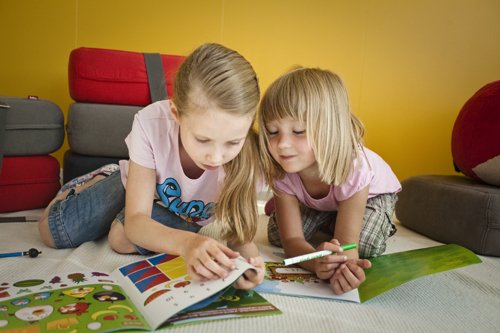
Technology continues to change our world. Some employers argue that graduates don’t have the current skills needed and point to the need to reform education. Do you agree?
The world is indeed changing rapidly in many ways. Technology is naturally one factor but there are other skills needed as well. Students will need ‘learning to learn’ δεξιότητες, abilities to access and manage vast amounts of information, and a positive attitude towards learning, just to mention a few examples. Είναι πολύ πιθανό ότι οι σημερινοί νέοι θα αλλάξουν τη σταδιοδρομία τους αρκετές φορές στη διάρκεια της ζωής τους, και το εκπαιδευτικό σύστημα πρέπει να υποστηρίζει ότι; βασική εκπαίδευση πρέπει να παρέχει μια σταθερή βάση για τη μελλοντική ζωή. Εκτός από αυτό, Χρειάζεται συνεχή διάλογο με τους εργοδότες και άλλους ενδιαφερόμενους στην κοινωνία. Τα σχολεία δεν μπορούν να απομονωθούν και δεν μπορούν να ζήσουν στο παρελθόν.
Technology claims to be able to individualize student learning. Is that seen by Finnish educators as a positive opportunity? How do Finnish teachers (renowned for their pedagogical criteria) feel about this?
I never underestimate the importance of technology but it is good to remember that technology is just a tool – the content is what matters at the end of the day. I am pretty sure that Finnish teachers share this view, πάρα πολύ. Ωστόσο,, we have to understand and accept that school is – and it should be – part of the rapidly digitalizing society. Σήμερα’ s school cannot be an airplane in which you have to ‘switch off all electronic devices’ at the door and come back to your normal life only when the school day is over. This does not work.
Εξάλλου, technology can make learning more fun. Educational games, especially those developed together with teacher trainers and pedagogical research, could be used more in teaching. Όντως, they could especially increase boys’ motivation in learning.
Sanna and Peter, can you briefly describe the Angry Birds Playground learning concept?
Angry Birds Playground combines the best of two great brands: Finnish education and Angry Birds. It is a kindergarten program that you can start anywhere.
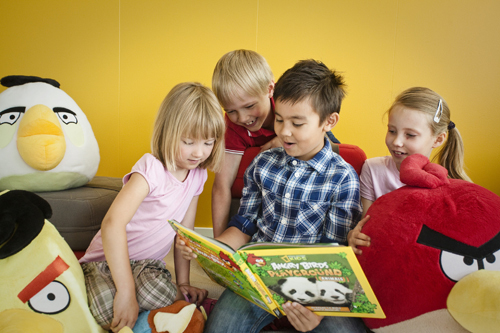
Jari, what were the key findings from your Angry Birds research in Finland and Singapore?
The results indicated that children both in Finland and in Singapore felt the learning activities with Angry Birds Playground materials were very fun. They also wanted to return to do the activities again.
Some of the children connected fun to new kinds of activities, which they hadn’t done before at home or in kindergarten or school. Για παράδειγμα, the mobile math game was described as fun since it was a completely new kind of game or activity. Εξάλλου, many children connected joy to the possibility to move and run while playing the game. Children thought it was fun to take a race against time by running in the yard or gym and looking for the Angry Birds characters that had to be caught with a mobile phone. Επίσης, some activities with the game cards and particular assignments in activity books were considered fun.
According to our study, children were also highly engaged in different activities in the playful learning environment. The engagement observed was focused working and concentration when doing assignments in activity books, and energized working with music instruments and playing physical games. Most of the teachers estimated that engagement with Angry Birds Playground was higher than in ordinary classroom activities. Some children found the Angry Birds materials too easy and therefore the engagement weakened towards the end of the test period.
Sanna and Peter: Fun learning also stands for teaching kids 21st century skills, like critical thinking, συνεργασία, επίλυση προβλημάτων, creativity and negotiation, all of which will be essential to them in the future. We believe kids learn this inside and outside the classroom. Periods of play and periods of rest are as important in learning as time in the classroom.
When children are having fun, does it always translate into better learning outcomes?
Jari: Απολύτως? Μη. Μάθηση, at its best, should be fun so that it helps children (and adults also) to engage in the learning activity. Learning is not necessarily easy. It takes time and effort to learn. Yet fun and joy can inspire learners to explore the learning materials. Εξάλλου, playfulness can improve learners’ imagination and creativity, and encourage practicing different skills.
Sanna and Peter, what are you doing with the Angry Birds products in China going forward?
We are building our first Angry Birds Playground classrooms in Shanghai, Beijing and Chengdu as we speak, and they will be fully operational at the start of the next school year.

Ulla, can you briefly describe ThingLink?
The idea of ThingLink is very simple: it’s a free service that allows online publishers to add notes, links, music or video to images. An image becomes a self-standing publishing platform and a new way to browse the Internet.
When did you discover American teachers were using your technology?
About a year ago, our team made an interesting observation (we have over half a million online publishers including newspapers, magazines, nonprofits): our most active users were not commercial publishers but teachers and their students, mostly from the United States. We started looking into the educational uses more closely. Teachers had quickly come up with tens of different ways of using interactive images in the classroom. Here are a few examples:
Τεχνών – Garth Holman, Sunday school teacher from the University of Akron: https://www.thinglink.com/scene/358616795164180480
Επιστήμη – Teacher Ernie G. Monte on space and the moon: http://www.thinglink.com/scene/494395152622682112
Μαθηματικά – Matthew Frey, middle school math teacher from Chicago, creates interactive math assignments (and is now putting together his own mobile “Matt’s math book” with interactive images): http://www.thinglink.com/scene/495019783087980544
Why are teachers using the technology and what are your next steps?
Teachers are paving the way for a new format for educational publishing that is interactive image books. There are a number of reasons why I believe this is happening. Textbooks are expensive. Teachers need learning material which is accessible to mobile devices. Teachers also need tools to support multiple modes of learning and intelligence, and to foster participation and collaboration outside of the classroom. With more image archives and digital libraries open for educational use, anybody can become an educational publisher. ThingLink already has 7000 οι εκπαιδευτικοί που, μαζί με τους μαθητές τους, έχουν αρχίσει να αλλάζουν τον τρόπο που βλέπουμε τις εικόνες στην εκπαίδευση. Εμείς θα συνεχίσουμε να τους στηρίξουν, συνεργάζεται με μεγάλες αρχεία εικόνας, εκδότες, και ερευνητικές βάσεις δεδομένων για να δημιουργήσετε ένα δωρεάν ανοικτό αρχείο των διαδραστικών imagebooks για όλους τους εκπαιδευτικούς.

Οι φωτογραφίες είναι ευγενική προσφορά της ομάδας της Φινλανδίας (Riitta Supperi), Rovio Entertainment και ThingLink
Στο παγκόσμιο Αναζήτηση για Εκπαίδευση, μαζί μου και παγκοσμίως γνωστή ηγέτες σκέψης συμπεριλαμβανομένου του Sir Michael Κομμωτήριο (Ηνωμένο Βασίλειο), Ο Δρ. Michael Block (ΗΠΑ), Ο Δρ. Leon Botstein (ΗΠΑ), Καθηγητής Clay Christensen (ΗΠΑ), Ο Δρ. Linda Ντάρλινγκ-Hammond (ΗΠΑ), Ο Δρ. Madhav Chavan (Ινδία), Ο καθηγητής Michael Fullan (Καναδάς), Ο καθηγητής Howard Gardner (ΗΠΑ), Ο καθηγητής Andy Hargreaves (ΗΠΑ), Ο καθηγητής Yvonne Hellman (Η Ολλανδία), Ο καθηγητής Kristin Helstad (Νορβηγία), Jean Hendrickson (ΗΠΑ), Καθηγητής Rose Hipkins (Νέα Ζηλανδία), Καθηγητής Cornelia Hoogland (Καναδάς), Αξιότιμο Jeff Johnson (Καναδάς), Η κ. Chantal Kaufmann (Βέλγιο), Ο Δρ. Eija Kauppinen (Φινλανδία), Υφυπουργός Tapio Kosunen (Φινλανδία), Ο καθηγητής Dominique Λαφοντέν (Βέλγιο), Ο καθηγητής Hugh Lauder (Ηνωμένο Βασίλειο), Καθηγητής Ben Levin (Καναδάς), Lord Ken Macdonald (Ηνωμένο Βασίλειο), Καθηγητής Barry McGaw (Αυστραλία), Shiv Nadar (Ινδία), Καθηγητής R. Natarajan (Ινδία), Ο Δρ. PAK NG (Σιγκαπούρη), Ο Δρ. Denise Πάπα (ΗΠΑ), Sridhar Rajagopalan (Ινδία), Ο Δρ. Diane Ravitch (ΗΠΑ), Richard Wilson Riley (ΗΠΑ), Sir Ken Robinson (Ηνωμένο Βασίλειο), Καθηγητής Pasi Sahlberg (Φινλανδία), Καθηγητής Manabu Sato (Ιαπωνία), Andreas Schleicher (PISA, ΟΟΣΑ), Ο Δρ. Anthony Seldon (Ηνωμένο Βασίλειο), Ο Δρ. David Shaffer (ΗΠΑ), Ο Δρ. Kirsten Μοναδική Are (Νορβηγία), Στήβεν Spahn (ΗΠΑ), Yves Theze (Lycee Francais Η.Π.Α.), Ο καθηγητής Charles Ungerleider (Καναδάς), Ο καθηγητής Tony Wagner (ΗΠΑ), Sir David Watson (Ηνωμένο Βασίλειο), Καθηγητής Dylan Γουίλιαμ (Ηνωμένο Βασίλειο), Ο Δρ. Mark Wormald (Ηνωμένο Βασίλειο), Ο καθηγητής Theo Wubbels (Η Ολλανδία), Ο καθηγητής Michael Young (Ηνωμένο Βασίλειο), και ο καθηγητής Minxuan Zhang (Κίνα) καθώς εξερευνούν τα μεγάλα ζητήματα της εκπαίδευσης εικόνα που όλα τα έθνη αντιμετωπίζουν σήμερα. Η Παγκόσμια αναζήτηση για την Εκπαίδευση της Κοινότητας Σελίδα
C. M. Rubin είναι ο συγγραφέας των δύο πολυδιαβασμένα online σειρά για την οποία έλαβε ένα 2011 Βραβείο Upton Sinclair, “Η Σφαιρική Αναζήτηση για Εκπαίδευση” και “Πώς θα μας Διαβάστε?” Είναι επίσης ο συγγραφέας του μπεστ σέλερ τρία βιβλία, Συμπεριλαμβανομένων Η Ρεάλ Αλίκη στη Χώρα των Θαυμάτων, και είναι ο εκδότης του CMRubinWorld.
Ακολουθήστε C. M. Rubin στο Twitter: www.twitter.com/@cmrubinworld


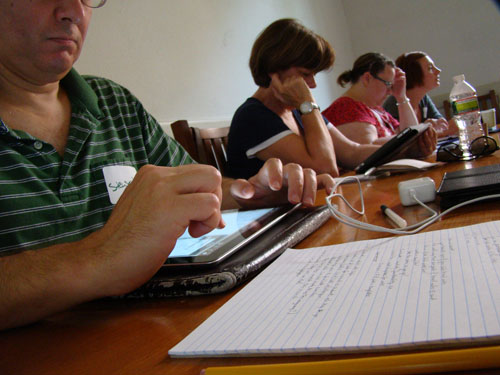
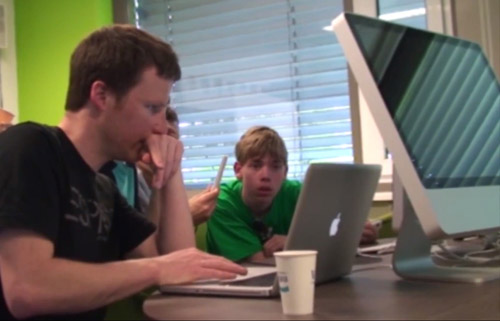
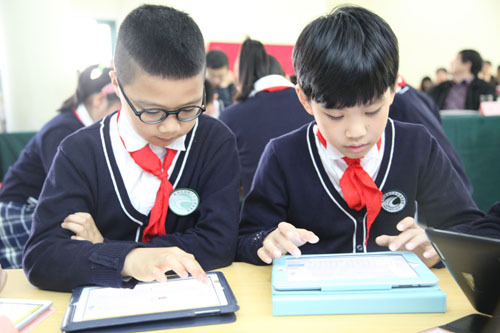
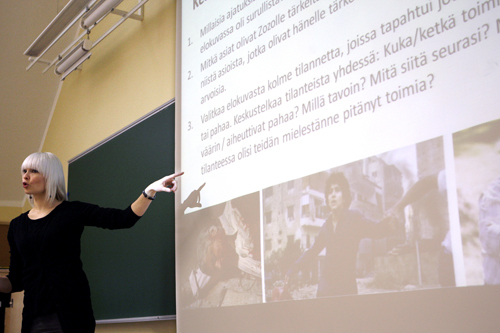
Πρόσφατα σχόλια